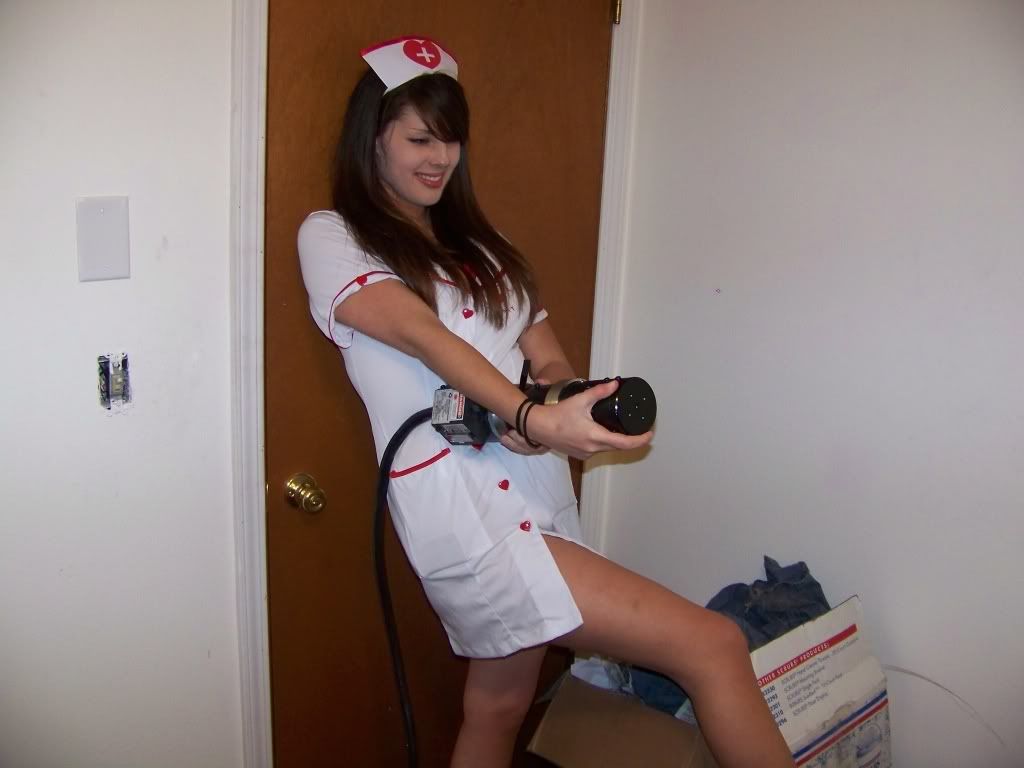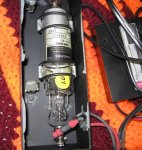Trevor
0
- Joined
- Jul 17, 2009
- Messages
- 4,386
- Points
- 113
...other than the actual beam of course.
I'm speaking about HeNe lasers specifically; I'm curious because I'm procuring one soon, and most of the fun (read: dangerous) facts I know about gas lasers apply to argon. Like their habit of arcing to a carelessly placed hand, which nearly rivals our habit of building and buying obscene amounts of lasers. But I digress.
I knew that any gas laser was going to have high enough voltage to vaporize anyone's fillings - but I didn't know much about HeNe's in particular, so I pulled up Sam's Laser FAQ.
Any words of wisdom in terms of handling the tube (...other than not handling the tube) and the laser in general? I believe this one is in the neighborhood of 2-3mW so (I hope at least) the epic shocking potential would be less than that of an argon.
I'm planning on building some sort of enclosure.
-Trevor
I'm speaking about HeNe lasers specifically; I'm curious because I'm procuring one soon, and most of the fun (read: dangerous) facts I know about gas lasers apply to argon. Like their habit of arcing to a carelessly placed hand, which nearly rivals our habit of building and buying obscene amounts of lasers. But I digress.
I knew that any gas laser was going to have high enough voltage to vaporize anyone's fillings - but I didn't know much about HeNe's in particular, so I pulled up Sam's Laser FAQ.
http://www.repairfaq.org/sam/laserhen.htm#henhlc1 said:However, unlike those for laser diodes, HeNe power supplies utilize high voltage (several kV) and some designs may be potentially lethal. This is particularly true of AC line powered units since the power transformer may be capable of much more current than is actually required by the HeNe laser tube - especially if it is home built using the transformer from some other piece of equipment (like an old tube type console TV or that utility pole transformer you found along the curb) which may have a much higher current rating.
The high quality capacitors in a typical power supply will hold enough charge to wake you up - for quite a while even after the supply has been switched off and unplugged. Depending on design, there may be up to 10 to 15 kV or more (but on very small capacitors) if the power supply was operated without a HeNe tube attached or it did not start for some reason. There will likely be a lower voltage - perhaps 1 to 3 kV - on somewhat larger capacitors. Unless significantly oversized, the amount of stored energy isn't likely to be enough to be lethal but it can still be quite a jolt. The HeNe tube itself also acts as a small HV capacitor so even touching it should it become disconnected from the power supply may give you a tingle. This probably won't really hurt you physically but your ego may be bruised if you then drop the tube and it then shatters on the floor!
...
After powering off, use a well insulated 1M resistor made from a string of ten 100K, 2 W metal film resistors in a glass or plastic tube to drain the charge - and confirm with a voltmeter before touching anything. (Don't use carbon resistors as I have seen them behave funny around high voltages. And, don't use the old screwdriver trick - shorting the output of the power supply directly to ground - as this may damage it internally.)
Any words of wisdom in terms of handling the tube (...other than not handling the tube) and the laser in general? I believe this one is in the neighborhood of 2-3mW so (I hope at least) the epic shocking potential would be less than that of an argon.
I'm planning on building some sort of enclosure.
-Trevor






